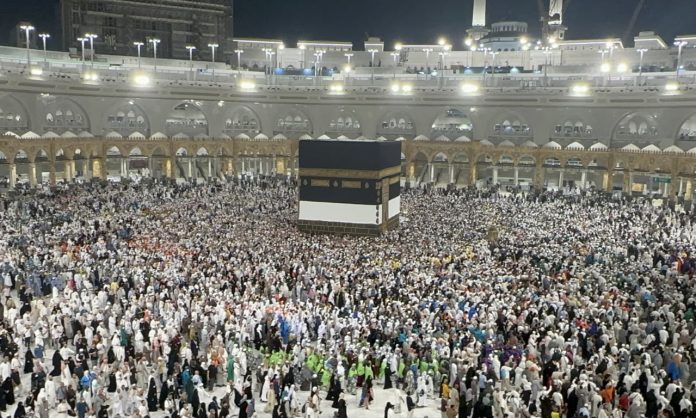The aftermath of this year’s Holy Hajj pilgrimage sparked widespread investigations and concern across the Muslim world, according to Arab media.
In Jordan, judicial authorities have charged 29 individuals with human trafficking and fraud following the deaths of 99 Jordanian pilgrims, according to a judicial source speaking on condition of anonymity. Nineteen suspects, including one woman, have been detained, with 10 of them banned from travelling until the case is finalised.
The public prosecutor, after completing initial investigations, has charged 29 suspects with human trafficking felony and fraud misdemeanour related to the pilgrims’ deaths. Initial investigations revealed that the accused, owners of private transport and Hajj tour companies, organised unofficial pilgrimage trips without proper permits.
The companies involved have been shut down, according to local media. Jordan’s comments followed criticism from Saudi authorities of people who skip the official lines to enter the Holy Hajj. As a result, many have been left out in the extreme heat that has now hit the region.
Egypt’s parliament is also set to discuss the issue around Egyptian pilgrims. Hanafi Gebali, Speaker of the House of Representatives, announced during the general session:
The council is constantly informed of all details of this file. The Tourism and Civil Aviation Committee will meet today to discuss the problems faced by Egyptian pilgrims in the presence of the Minister of Tourism.
Meanwhile in Morocco, a family is desperately searching for a 70-year-old woman who went missing during a pilgrimage. Ahmed, the woman’s son, reported in an audio recording:
Hajja Aisha disappeared on the second day of our stay in Mina, after I accompanied her early in the morning to perform ablutions at the bathrooms of Camp 20, designated for Moroccans. Since then, there has been no trace of her.
Pilgrimage management issue
Saudi Arabia reported more than 1,300 pilgrimage-related deaths this year, coinciding with record high temperatures. Most were reportedly “unauthorised pilgrims.” In Egypt alone, 658 deaths have been confirmed, 630 of which were unregistered pilgrims.
Jordan’s foreign ministry reported that 21 Jordanian pilgrims are being treated in Saudi hospitals, including 16 in critical condition. Jordan has sent 8,000 pilgrims this year. These incidents have raised serious issues about the management of the pilgrimage and the effectiveness of measures to protect pilgrims, especially the elderly and vulnerable. They also highlight the risks associated with unauthorised Holy Hajj trips.
The incidents have also sparked debate about the need for better coordination between Arab countries and Saudi Arabia in organising the annual pilgrimage. Earlier, the Saudi Minister of Hajj and Umrah, Tawfiq al-Rabiah, said this year’s Hajj attracted 1.8 million pilgrims from more than 200 countries. This figure is in line with last year’s attendance figure, but falls short of the 2.5 million registered in 2019, before the COVID-19 pandemic.
The Hajj season is winding down, with pilgrims beginning to return to their home countries. However, the full effects of this year’s ordeal are still evident and many families are anxiously awaiting news about their loved ones.
A weather warning remains in effect for Saudi Arabia as temperatures reached 45 degrees Celsius on 25 June and will remain in the area for the next few days. Saudi authorities attempted to cool pilgrims by spraying water vapour over large areas and bringing in other technologies to help.
The World Meteorological Organisation (WMO) expects temperatures to continue to rise over the next few years. According to the WMO report, the global average surface temperature for each year between 2024 and 2028 will be 1.1-1.9 °C higher than the 1850-1900 baseline.
Last year, global temperatures were elevated due to a strong El Niño. WMO predicts La Niña to develop and return to cooler conditions in the tropical Pacific in the near future. El Niño and La Niña are two opposing climate patterns.
